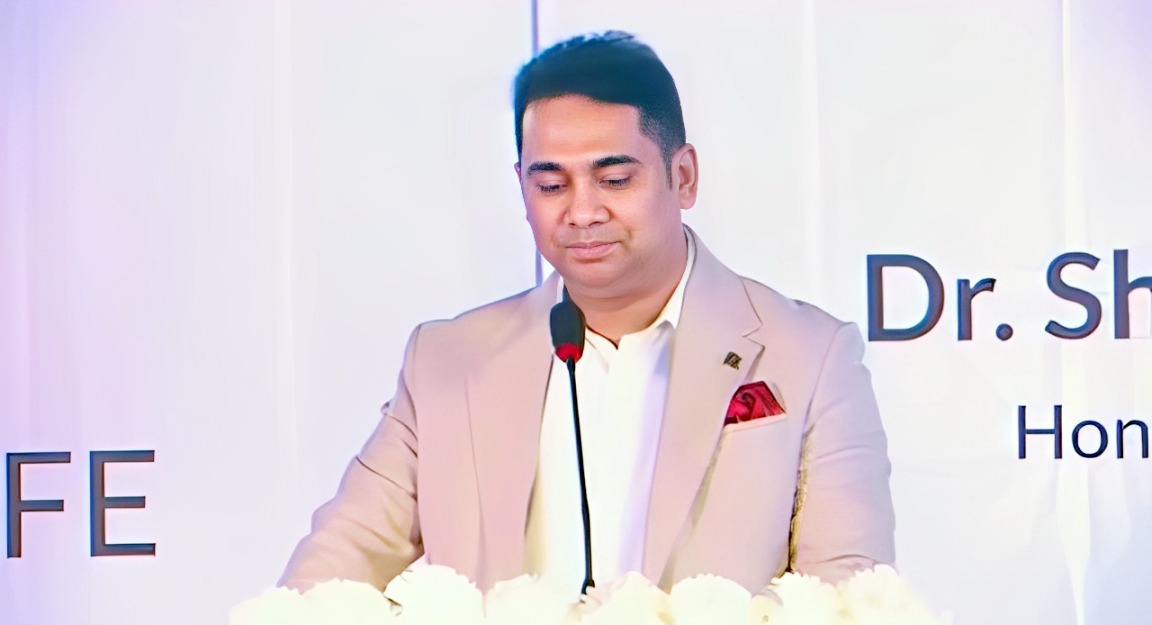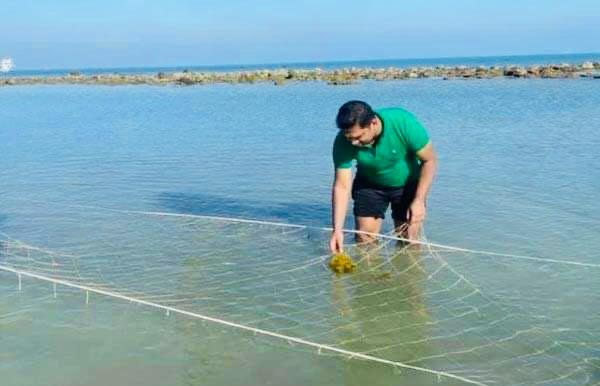

Md Nayon Howladar: Bangladesh's coastal waters hold immense untapped potential for mariculture development, and Professor Dr. Md. Jobaer Alam of the University of Dhaka's Department of Oceanography stands as a pioneering figure in unlocking this blue economy frontier. His groundbreaking research and innovative approaches are transforming how Bangladesh can leverage marine resources to uplift coastal communities, particularly focusing on sustainable livelihoods for women and rural populations.
Professor Alam's academic credentials uniquely position him to lead this transformation. With a Bachelor's and Master's in Fisheries from the University of Dhaka, a Post Graduate Diploma in Aquaculture Technology from Vancouver Island University, Canada, an MBA from Keller Graduate School of Management, USA, and a Ph.D. in Environmental Science from the University of Dhaka, he bridges scientific excellence with practical business acumen. Currently serving as Professor and former Chairman (2018-2024) of the Department of Oceanography, he has shaped marine science education while supervising over 20 Master's students on blue economy research.

The seaweed culture operated by Professor Dr. Jobaer Alam in St. Martin’s Island of sustainable practices has drawn attention for its innovative approaches to mariculture.
His pioneering work on mariculture centers on demonstrating how cage culture and seaweed farming can revolutionize Bangladesh's island economies. His comprehensive research at St. Martin's Island (2019-2021) established the scientific foundation for commercial mariculture operations. By analyzing water quality, plankton diversity, nutrients, and heavy metals across 12 stations over three seasons, Professor Alam identified optimal conditions for cultivating John's Snapper (Lutjanus johnii) with a benefit-cost ratio of 1.17 and brown algae (Padina gymnospora) with remarkable BCRs of 2.75 to 3.36, proving the economic viability of these ventures.
What distinguishes Professor Alam's approach is his visionary focus on inclusive development. His innovation emphasizes mariculture as a tool for empowering marginalized coastal communities, particularly women and rural populations who have historically been excluded from mainstream economic activities. By developing accessible cage culture and seaweed farming techniques suitable for small-scale operators, he envisions transforming island livelihoods through sustainable marine resource utilization.
His research publications, including studies in Heliyon (2023) on nutrient dynamics and the Journal of Biodiversity Conservation and Bioresource Management (2024) on seaweed cultivation, provide practical blueprints for establishing commercial operations. As Executive Member of the Oceanographic Society of Bangladesh and the International Centre for Ocean Governance, Professor Alam connects local innovations with global best practices.
The high potentiality of mariculture in Bangladesh is no longer speculative—Professor Alam's research demonstrates concrete pathways for commercial success. His work on integrated multi-trophic aquaculture systems, combining fish cage culture with seaweed cultivation, offers environmentally sustainable models that can be replicated across Bangladesh's coastal regions. By training the next generation of marine scientists and establishing community-centered mariculture frameworks, Professor Alam is pioneering a blue revolution that promises prosperity for Bangladesh's coastal populations while preserving marine ecosystems for future generations. His vision transforms islands from isolated communities into thriving hubs of sustainable marine enterprise.
